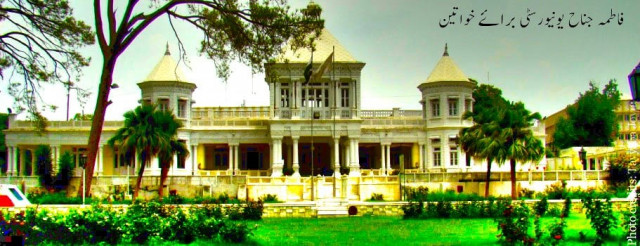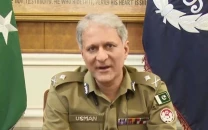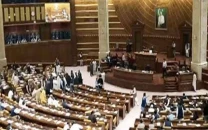‘Nobody should be punished for academic work’
Dr Carpentier says researchers will fight until the last breath to protect the right to speak

Academic freedom is at the centre of our professional identity, said Dr. Nico Carpentier, an academic and researcher who is visiting Pakistan.
Following his talk at a two-day international media conference at the Fatima Jinnah Women University (FJWU) in Rawalpindi, the Belgium-based author sat for an interview.
“All academics would fight until their last breath to protect the right to speak from an academic perspective,” stressed Dr Carpentier, who has authored books and research articles on media, communication and politics.
“Academic freedom means that your research has to be free and that you should never be punished [for it] in any way,” he added.
Dr Carpentier, who is the president of the International Association for Media and Communication Research (IAMCR), opined that terminating the services of academics for their research works is “a total violation of academic freedom”.
To the question that could academics afford political neutrality, he responded that their political opinion has nothing to do with their academic work. “You can have a political opinion.
And for me, that has nothing to do with being an academic, but then engaging in political speech should not be sort of used to sanction somebody in academia. In some cases, civil rights are being violated because somebody is formulating a political opinion that is then used against them,” he commented.
Talking about the research culture in Pakistan, he said the integration of research and teaching meant the integration of theory of major frameworks that drive academic research. “I think that’s one of the weak spots that I’ve seen here [in Pakistan],” he mentioned.
However, he lauded Pakistani researchers and academics for being recognised at the international level. “Having visibility is important; you hardly see scholars from some countries,” Dr. Carpentier maintained.
To the oft-repeated query that why academia and the media industry are poles apart in Pakistan, he replied: “It’s not only here, trust me, it’s quite a broad need, but we academics function in the logics of our field. And that does not always allow for an easy conversation with people from other fields.”
He stated there is a need to have experts who can understand and meet the requirements of both academia and the industry. “Such bridging figures can play vital roles in translating the principles and content.
So I think we need more of these bridging figures that actually can do both at the level of the media industry,” he shared. It would be great to have more people that can be both working at the university academically and be media professionals at the same time, Dr. Carpentier added.
The interviewer is a media scholar
Published in The Express Tribune, February 26th, 2021.


















COMMENTS
Comments are moderated and generally will be posted if they are on-topic and not abusive.
For more information, please see our Comments FAQ